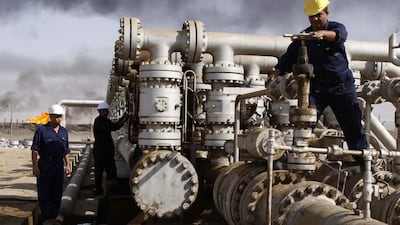On Sunday, oil and energy ministers will be meeting in Doha to discuss the proposed production freeze at the levels of January 2016, or some other month that may be agreed.
The declared objective is to return to a balanced supply-demand situation that will stabilise the international oil markets. There has been no mention, so far, of a targeted price level.
Needless to say, production management is an effective tool for the achievement of price targets, but there must a price to target.
Since 1973, Opec has been through several periods of supply-demand imbalance and wild markets. When prices were shooting up, the Opec countries did nothing other than enjoy the additional income. When prices were diving, cutting production would only have helped their competitors, who were also increasing their market share.
Production management worked well only when the objective was to keep prices within a tunnel with a mechanism that automatically increased or decreased production to keep the price within the desired range.
In setting the upper and lower price levels, several strategic factors have to be considered. These include honouring the principles stated in the Opec Statute of securing a steady income to the producing nations, efficient and regular supply to consuming countries and a fair return for investors in the industry.
But things have changed since these principles were set; Opec is no longer the major supplier and the industry's new investors are Opec's competitors.
Therefore, a production freeze with no price indication will not solve the producers’ problems. Talking of fair, moderate, reasonable or agreeable prices without numbers will not do.
For the ministers to agree on a price range target will be time consuming. That is assuming that they can settle the issues of the monthly production level to use as a base, and who is in and who is out.
The participants to the proposed production freeze are not low cost Opec producers only, but also others whose costs are much higher. The higher the price range to be targeted, the more mothballed capacities will come back into production increasing supply. This will make it rather difficult for the ministers to include a price target within the scheme in its first phase.
Mr Salman was an adviser to Qatar’s minister of energy and industry. He has also been the deputy secretary general of Opec and the chief executive of Iraq’s State Oil Marketing Organisation.
business@thenational.ae
Follow The National's Business section on Twitter

